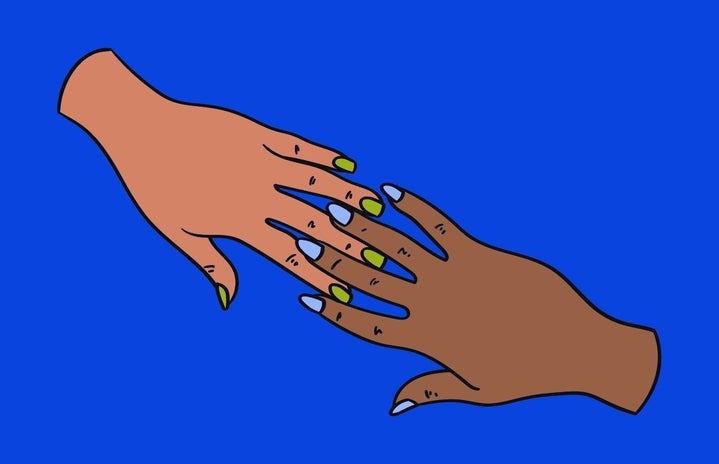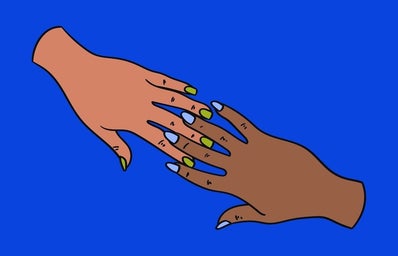Representation matters, especially when you find yourself making tacos on a baking show.
After watching Great British Baking Show contestant Carole peel an avocado as if it were a potato, I lost all hope for accurate Hispanic representation in mainstream media.
Between jokes of substituting the name Juan with the number one and calling guacamole something that sounded like “glockimolo,” the show delivered a misguided and stereotypical Mexican week last month. The fourth episode of season 13 was dedicated to Mexican culture, but it made no effort in doing research or showing a variety of recipes that accurately celebrated the country’s food. The contestants were prompted to make pan dulce, tres leches and, weirdly, tacos.
The pan dulces were OK, but the tres leches were presented as a decorating challenge that made contestants stack up the cakes in ways that ranged from difficult to almost impossible when dealing with milk-soaked cakes. This challenge caused multiple cakes to be too dry, defeating the entire purpose of a tres leches. It was even more puzzling and preoccupying to see the group of bakers attempt to make a washed-down version of Mexican tacos. I sat through a painfully long bit of Paul Hollywood explaining the art of tacos as if he was a Mexican culinary scholar and chef, just to show off the blandest presentation possible.
The food was offensive, but the mentions of the culture were a thousand times worse. They pronounced everything wrong and made jokes about stereotypes in the culture while dressed in serapes and sombreros and shaking maracas.
What is even worse is this is not the show’s first botched cultural week. In October 2020, the baking competition decided to host a Japanese week. The offenses ranged from horrible pronunciation to making Baos, or steamed buns, which are originally Chinese. Just like with Mexican week, the show faced great backlash on social media, as shown in Jess Lee’s Digital Spy article.
Cultural stereotyping in the media has always been an issue, but it is particularly problematic when the mocking comes from the same parties that created the offensive stereotypes.
Culture in the media
As Pavan Acharya writes in her article in Drops of Ink, stereotypes and misrepresentation of cultures have always been prevalent in mainstream media. Acharya uses examples from Disney Channel shows “The Suite Life on Deck” and “Jessie” where other countries were type casted into exaggerated examples of their traditions and roles in society. In the first show, the twins Zack and Cody travel on a cruise around the world and experience new cultures. However, rather than taking the opportunity to teach audiences about diversity and world perspectives, the TV series shows an Italian con-artist family, a yoga guru on an Indian mountaintop who leads a telemarketing scheme and a Japanese soda that tastes like shrimp and disgusts the protagonists.
Disney is not the first, or the last, to fall into the habit of leaning into cultural stereotypes, and the harm that comes from this misrepresentation in the media can be seen in the prejudices that plague our society today. It is those stereotypes that lead to comments of all Asian people “looking the same,” of all Hispanic people generalized as Mexican and of all Indian people categorized as smart and introverted. The lack of serious, insightful representation is what has led our current society to be misinformed about the wide range of customs and attitudes in cultures
Culture in the books
The issue of misrepresentation is rooted in education. As the saying goes, “history is written by its victors.” Those in power and in better sociopolitical and economic positions get the chance to tell the tale.
The Michigan Daily writer Reva Lalwani explains the differences among multiple states’ education systems and how they teach diversity through history. Lalwani talked with two students from the University of Michigan College of Literature, Science and the Arts, and they had similar history learning experiences. One of the students tells how her class focused on the presidents and the developments during different eras in the U.S., and it glossed over the country’s history of racism and white supremacy. I remember my high school history in a similar manner: we wrote an entire diary with journal entries about the presidents, but we never mentioned the rise of hateful organizations such as the KKK or the Neo-Nazi movements in modern America.
This lack of self-awareness, paired with world history courses that focus on Western history and briefly mention the existence of advanced civilizations in the Americas or the powerful empires in the East, make for a poorly structured education base and limited understanding of different cultures. Unfortunately, the cure for the curse is also its cause: the lack of diverse perspectives.
Culture from different voices
Author Chimamanda Ngozi Adichie speaks in her TED Talk “The danger of a single story” about the importance of diverse voices. Adichie talks about reading famous books when she was a young girl in Nigeria and feeling alienated by the elements in the stories that she couldn’t experience, such as snow or any Western traditions. Although genres and narratives vary, the most acclaimed and studied texts are written by the majority – most perspectives are male, white, Westernized. What she calls the danger of the single story is the lack of other perspectives, a situation that often leads marginalized minorities to feel ostracized and excluded from literature.
The exclusion of other voices is what makes a little girl feel left out when the princesses don’t have curls or dark skin, or a little boy looks at himself in the mirror after realizing all his heroes tend to be from the same demographic and never quite look like him. It is the same way I felt when I watched all the Christmas movies where people enjoyed a “white Christmas” and drank hot chocolate in the cold, while I lived in a country with year-round tropical weather.
There is not only a danger, but a sadness, in maintaining a world that is told by a single, generic narrator. That is why it matters that stereotypes are not enforced in mainstream media, because we consume it more than we consume real food. We must educate ourselves and make up for the lack of diversity in our classrooms. That way, perhaps we won’t end up making bad jokes about Mexican culture in a baking show.


